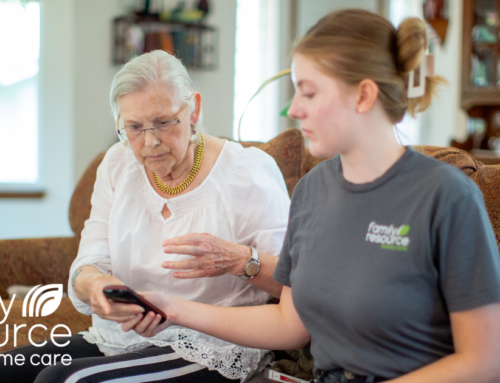When considering at home care for seniors in Bellevue, it’s important to understand the distinction between Alzheimer’s and dementia, as well as the tailored approaches caregivers can provide. These conditions, while often used interchangeably, have unique characteristics and care requirements.
Defining Dementia and Alzheimer’s
Dementia is an umbrella term for a group of cognitive disorders that affect memory, thinking, and social abilities severely enough to interfere with daily life. It’s not a specific disease but a general term that describes a wide range of symptoms.
Alzheimer’s disease is the most common type of dementia, accounting for 60-80% of cases. It is a specific disease that leads to the loss of cognitive functioning—thinking, remembering, and reasoning—and behavioral abilities.
Key Differences Between Alzheimer’s and Dementia
- Cause and Onset:
- Dementia can be caused by various factors, including vascular issues, Parkinson’s disease, and other conditions.
- Alzheimer’s is primarily due to genetic, lifestyle, and environmental factors affecting the brain over time.
- Symptoms Progression:
- Dementia symptoms can vary widely based on its cause and can include memory loss, difficulty communicating, and changes in mood and behavior.
- Alzheimer’s typically starts with memory loss and confusion, progressively leading to severe cognitive decline.
- Diagnosis:
- Dementia diagnosis involves identifying the underlying condition causing the symptoms.
- Alzheimer’s diagnosis is based on medical history, cognitive tests, and brain imaging.
Approaches to At Home Care for Seniors
Caring for seniors with dementia or Alzheimer’s requires specialized strategies to ensure their well-being and quality of life. Here’s how caregivers can provide effective at home care for seniors in Bellevue:
1. Personalized Care Plans
Every senior’s experience with dementia or Alzheimer’s is unique. Care teams can develop personalized care plans that address specific needs and preferences. This might include medication management, regular health check-ups, and tailored daily routines.
2. Cognitive Stimulation
Engaging seniors in cognitive activities can help slow the progression of symptoms. Caregivers can involve them in puzzles, memory games, reading, and other stimulating activities that match their cognitive abilities.
3. Safety Measures
Safety is paramount in at home care for seniors with dementia or Alzheimer’s. Caregivers can ensure the home environment is free of hazards, coordinate the installation of safety devices like grab bars, and create a routine that minimizes confusion and agitation.
4. Emotional Support
Emotional well-being is crucial. Caregivers can provide compassionate support, encouraging social interaction and emotional expression. This includes being patient, listening actively, and offering comfort during times of distress.
5. Physical Health and Wellness
Maintaining physical health is vital. Caregivers can assist with daily exercise, healthy meal preparation, and managing medical appointments. Regular physical activity can enhance mood and overall health.
6. Respite Care for Family Members
Caring for a loved one with dementia or Alzheimer’s can be demanding for family members. Offering respite care provides them with much-needed breaks, reducing stress and preventing caregiver burnout.
Why Choose At Home Care for Seniors in Bellevue
Opting for at home care for seniors in Bellevue ensures that your loved ones receive the highest quality care in a familiar and comforting environment. Our caregivers are trained to handle the complexities of dementia and Alzheimer’s, providing compassionate, personalized care that supports both the senior and their family.
Understanding the differences between Alzheimer’s and dementia is crucial for providing effective at home care for seniors. In Bellevue, our caregivers are dedicated to offering tailored care plans, ensuring safety, and promoting the overall well-being of seniors. Contact us today to learn more about how we can assist your loved ones.
Sources:
Alzheimer’s Disease vs. Dementia: What’s the Difference? (healthgrades.com)






